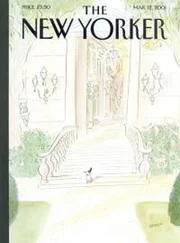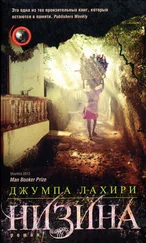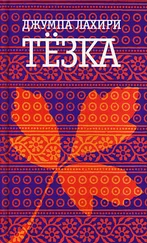Through the window I can also observe the family that owns the store. The mother, a rotund woman with dark, dry hair, sits at the register. The father oversees the fountain pens stored in a glass case, as if they were precious jewels, bottles of ink lined up like costly perfumes. The parents are always talking to their lanky son, dressed in black, who clambers up the ladder in two seconds to bring down this or that from the shelves. A lively, intelligent debate is their way of communicating. They comment on articles in the newspaper that the mother is always leafing through, the crazy things that happen every day in the city, the great difficulties facing countries they’ll never visit.
I’m especially fond of the mother. One time I thought I’d left my sunglasses in the store. I rushed back, and when I told her what I was missing she stepped down from the cash register right away, accompanying me carefully through the store, stopping in front of the shelves, retracing my steps. I’d bought a lot that day but she’d kept track of it all, she still had each purchase in her head, which is why she led the way without asking me a thing.
“I don’t see them here, honey,” she’d said at the end of her investigation, but then, giving me a hard look, she conveyed that the sunglasses were attached to the collar of my coat, hanging like a bat behind my scarf.
This stationery store has been one of my haunts for years. When I was a young girl I’d go there to get what I needed for school, then for college, and now for teaching. Every purchase, however mundane, makes me happy. Each item validates my life somehow.
But today when I get here all I see are suitcases in the window, all hard-shelled, most of them the right size to carry on board for a quick getaway by plane. They’re all on deep discount. Inside, they’ve taken down the high shelves, and in the middle of that space there are more suitcases, some bigger, arranged by color and manufacturer. There’s nothing harmonious about this, the store looks hideous. In spite of the high ceiling and the graceful proportions it’s turned ugly, bereft of character. It reminds me of that disorderly part of the airport where orphaned suitcases gather once they come off the conveyor belt, knowing that no one will come to claim them.
I grow sad looking at all those brand-new suitcases, all of them empty, waiting for a traveler, waiting for various things to fill them, waiting for someplace to go. There’s nothing else for sale. Just suitcases. But then, right at the entrance, I notice a bunch of umbrellas, big ones and small ones, of the cheapest quality, bait for desperate tourists caught in a downpour, those pathetic umbrellas that almost always end up in the garbage can after the storm, shoved in with a certain fury, looking like tortured herons.
The family that ran the stationery store isn’t in charge of this place, I don’t see them. There’s just a languid young man with fine features who looks halfheartedly through the store window, out onto the street and at the passing cars. I feel like walking in and asking, Where’s the family? I wonder if the business failed, if they were evicted, humiliated, if they’d been upset. But it’s not this young man’s fault. He’s just here to make a living. As disappointed as I am, I’m not surprised that my beloved stationery store no longer exists, the rents must be sky-high around here, and furthermore, who buys notebooks in the end? My students can barely write by hand, they press buttons to learn about life and explore the world. Their thoughts emerge on screens and dwell inside clouds that have no substance, no shortage of space.
A couple comes in: they’re young and in love, attached at the hip, that sublime phase when every stupid thing feels enchanting. The store doesn’t upset these two, on the contrary, it’s clear that this is just the place they’ve been looking for. They get pleasurably lost in that warren of luggage. They open and close the brand-new models, lined, unlined, pulling on the zippers, pounding plastic carapaces. It’s probably the first time they’re going away together. Maybe also the last? Will they come to the conclusion, after spending three days together in a hotel, that they’re not really so in love? Or will their bond only deepen? As I contemplate this, the suitcases turn, for a few seconds, into enormous books: they’re swollen volumes lacking titles, lacking meaning, collected in a library for monsters, or for idiots.
She picks out a purple suitcase. He decides on bright yellow. They pay the young man, then put their new luggage to the test, placing a few shopping bags inside, along with the jackets and scarves they don’t need given that, after a coolish morning, the day has turned suddenly warm and everyone on the street is peeling off layers. These two appear quite satisfied, eager for their voyage together. They leave the store dragging behind them, on four spinning wheels, an unquestionable joy that furrows the worn-down cobblestones of the city.
At Dawn
If I go up to the roof of my building I can see the sun rise. Usually I’m too lazy, I hate leaving the warmth of my bed, so it’s hard to get it together, get up, get dressed in time. But in winter, every so often, I manage, given that the day starts a little later. I throw my coat over my pajamas, and tie a scarf, and pull on a pair of boots, then I take the elevator and have a seat among all the laundry that the other tenants in the building hang out to dry, between towels and tablecloths, sweaters and underwear. I wait as the golden light highlights a section of the jagged contours of the hills across the way. It all happens in a matter of seconds: the sphere, so precise at the start, emerges, perfectly round, like an egg yolk that then slips from its shell. It rises methodically, turning pale as it climbs higher, though I know it’s not budging, not even by a millimeter, that it’s just an illusion, fantastical. I watch until it’s no longer possible, until it becomes too painful.
But it’s not just my eyes that suffer at dawn, it’s my heart that breaks. I feel the light that blazes across the city, striking my face but also warming my marrow, and as it rises I continue to look at my neighbors’ laundry, threadbare and bone-dry. Then I close my eyes so that I see the light through my eyelids, and I regret being typically sluggish and missing out on this extraordinary, everyday phenomenon. On the other hand, I couldn’t bear beginning each morning like this. I’m both ablaze with energy and sapped of it, and I remember the words of a great writer underlined in one of my books: I flee, after a moment, terrified, from the great flame to the shadows: I fear the flame will consume me, that it will seize me and reduce me to an element even less significant on this earth, a worm or a plant…I can’t think straight, everything seems futile, life itself seems extremely simple, I don’t care if nobody thinks of me anymore, if hardly anyone writes to me. Feeling similarly depleted, I return downstairs and write these lines as another day begins.
In My Head
It’s that spring in my step I’ve always lacked, an absence of agility that would hold me back, that was an obstacle when I was a young girl, at school. For half an hour they let us play outside. Most of the students were euphoric during that short block of time, but I couldn’t stand it. I hated their sharp cries, the spontaneous exaltation. In any case, the game I’d play with my friends back then was to leap from one tree stump to another, as if they were little round islands, a wooden archipelago arranged in a clearing. The stumps were low, they must have come up to our hips, no higher than that, but climbing on top of them made me sick to my stomach, and once I stood up my legs would tremble. Crossing those gaps cautiously and clumsily to get from one to the other took enormous effort, one that humiliated me as the other girls moved back and forth without a thought, relishing every second of the activity as if they were birds hopping from branch to branch. How I envied their brazen strides. It now occurs to me that I was as tenacious as I was timid. I never protested, I did what they did, that is, I clambered up, I hesitated, and then I strode across, afraid each time that the empty space between the stumps would swallow me up, terrified each time that I would fall, even though I never did.
Читать дальше
![Джумпа Лахири Whereabouts [calibre] обложка книги](/books/384312/dzhumpa-lahiri-whereabouts-calibre-cover.webp)




![Хелен Виннер - 33 несчастья Алисы [calibre]](/books/384302/helen-vinner-33-neschastya-alisy-calibre-thumb.webp)
![Даниэла Стил - Finding Ashley [calibre]](/books/384308/daniela-stil-finding-ashley-calibre-thumb.webp)
![Аманда Горман - The Hill We Climb [calibre]](/books/384311/amanda-gorman-the-hill-we-climb-calibre-thumb.webp)
![Дэвид Балдаччи - A Gambling Man [calibre]](/books/384314/devid-baldachchi-a-gambling-man-calibre-thumb.webp)
![Джон Ирвинг - Viename asmenyje [calibre]](/books/384315/dzhon-irving-viename-asmenyje-calibre-thumb.webp)
![Джон Ирвинг - Paskutinė naktis Tvisted Riveryje [calibre]](/books/384317/dzhon-irving-paskutine-naktis-tvisted-riveryje-cal-thumb.webp)
![Джон Ирвинг - Pasaulis pagal Garpą [calibre]](/books/384318/dzhon-irving-pasaulis-pagal-garpĄ-calibre-thumb.webp)
![Джон Ирвинг - Našlė vieneriems metams [calibre]](/books/384320/dzhon-irving-naŠle-vieneriems-metams-calibre-thumb.webp)